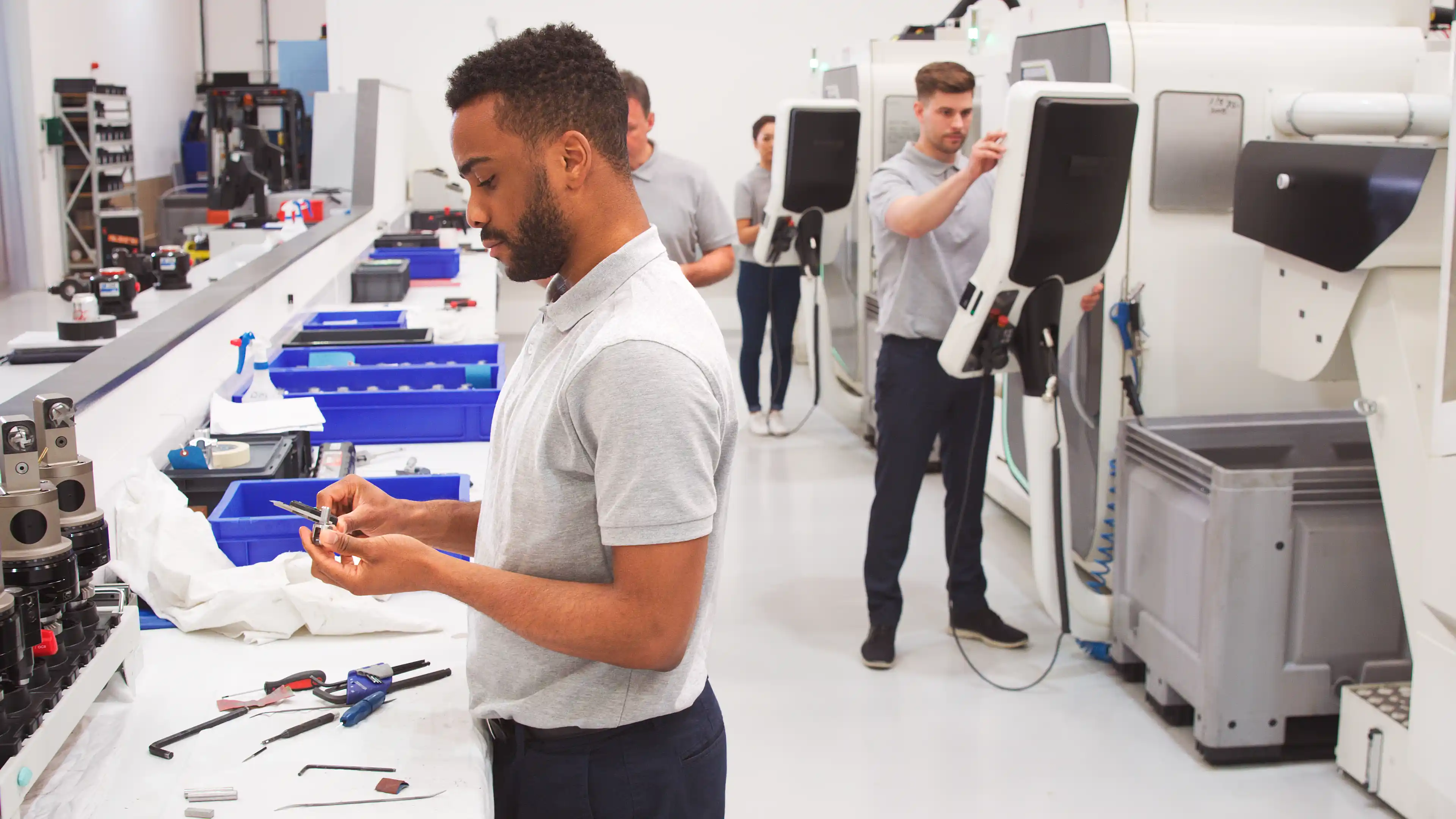
New Manifesto demands action to secure future of UK engineering and manufacturing
Date
07/03/2024
Category
Policy News , News , Insights
The engineering and manufacturing manifesto for change
- The Manifesto is a roadmap for the engineering and manufacturing workforce to adapt to the demands of new technologies and the net-zero transition.
- Enginuity calls on sector employers, training providers, and policymakers to work together on five key priorities for building and maintaining a skilled workforce for the future.
Launch of the Enginuity Skills Action Plans
Today, engineering and manufacturing skills charity Enginuity launches the Enginuity Skills Action Plan for the Engineering and Manufacturing Sector – A Manifesto for Change.
Engineering and manufacturing are the backbone of the UK economy - manufacturing alone contributes £224bn GVA*. The problem-solving skills of this generation of engineers will be vital in tackling the biggest challenges society faces today and in the future. But with technology, digitisation, and robotics promising massive disruption to engineering and manufacturing, the sector must upskill its workforce and invest in attracting future talent.
The importance of UK manufacturing
UK manufacturing currently:
- Ranks 8th globally by value
- Employs 2.6m people
- Accounts for 49% of all exports
- Contributes 41% of business R&D
- Accounts for 16% of business investment.*
“Now is the time to act. If we do nothing, the sector will survive, but it will fail to thrive, and we will fail in our endeavour to be a leading global player in engineering and manufacturing,” said Dame Judith Hackitt, Chair of the Enginuity Group, who provides a foreword to the Manifesto.
Enginuity's five key priorities
Enginuity, whose mission is to find new ways of closing the UK’s engineering and manufacturing skills gap, is urging engineering and manufacturing employers, Higher and Further Education providers, and policymakers to pledge their support for the five key priorities set out in the Action Plan:
1) Upskilling and reskilling
Identify key transferable skills and work with educational institutions, training providers, and SMEs to support learners in attaining them, helping the sector keep pace with change.
2) Attracting people to engineering and manufacturing
Work to improve the sector’s image among young people and increase diversity in recruitment, alleviating the estimated 173,000 worker shortfall expected to affect the UK’s STEM sector in the next five years.
3) Flexible and responsive qualification and learning systems
Ensure that training is standardised, relevant, and adequately funded, giving the next generation of recruits the skills they will need for the future.
4) A robust and cohesive evidence base
Work with Enginuity to collect and use training and skills data, helping the sector make more informed decisions and determine the success of interventions.
5) Funding systems
Ensure that the Apprenticeship Levy and post-16 funding are optimally used while improving accessibility for employers and training providers, building a responsive, flexible, and transparent funding system.
Dame Judith Hackitt, Chair of the Enginuity Group, said:
“None of us can know exactly what the future’s engineering and manufacturing jobs will look like, but we know they will be different from today’s. Technology has already had a sector-wide impact on systems and processes, and that’s only going to increase in the years to come.”
“I have been closely involved with engineering and manufacturing my whole career, and as Chair of the Board for Enginuity I’m passionate about creating a high-performance skills system that will help the sector grow, promote economic success, and support social mobility.”
Ann Watson, Chief Executive of Enginuity, said:
“The engineering and manufacturing sector is staring in the face of enormous challenges and fantastic opportunities. In order to meet them head-on, we need employers, training centres, educational institutions, and policymakers to work together. If we act now, we can prepare the existing workforce and attract a whole new generation of engineering talent.”
Employers, policymakers and training providers are encouraged to pledge their support.
Pledge your support for our Manifesto for Change*All stats for manufacturing only from MakeUK
Be part of the change we need in the engineering and manufacturing sector.
Pledge your support for our Manifesto for ChangeMore news



